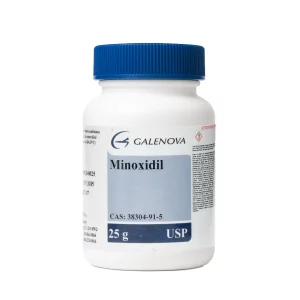Your cart is empty.
Your cart is empty.
Alongside numerous “Ozempic success stories“ related to its primary functions, emerging data suggest that Ozempic may also protect kidney health, a critical area of concern for individuals with metabolic risk factors. In addition, there are also Ozempic cardiovascular benefits.
Ozempic (semaglutide) is a GLP-1 receptor agonist widely recognized for its effectiveness in managing type 2 diabetes and supporting weight loss. As kidney function becomes increasingly relevant to longevity and overall wellness, understanding Ozempic’s potential impact on renal health is vital.
This article examines the evidence behind Ozempic’s impact on kidneys and explores its implications for long-term health. It is important to remember that when you purchase Ozempic, a valid prescription from a licensed healthcare provider is required, and it should only be obtained through authorized pharmacies.

The kidneys are essential organs for filtering blood, balancing fluids, managing electrolytes, and removing waste products. They play a crucial role in maintaining homeostasis and supporting overall health.
Early kidney damage often progresses silently, with few noticeable symptoms. Without intervention, this can lead to chronic kidney disease (CKD) or even kidney failure, underscoring the importance of preventive measures.
GLP-1 receptor agonists like Ozempic indirectly benefit kidney health through their metabolic effects:
These effects suggest that Ozempic and the kidneys are closely linked, with renal protection emerging as a secondary benefit of its primary actions.

Groundbreaking research has begun to shed light on Ozempic’s potential role in renal health:
These large-scale trials represent a pivotal step in understanding Ozempic’s renal protective effects, offering hope for individuals at risk of CKD.
Ozempic’s mechanisms of action contribute to kidney protection in several ways:
These combined effects make Ozempic a promising option for individuals seeking to preserve kidney health.

Ozempic may be particularly beneficial for:
Nephrologists and endocrinologists are increasingly recognizing Ozempic’s potential beyond diabetes management. Clinical reports suggest a shift in perception, with Ozempic being viewed as a medication with organ-protective properties. Experts emphasize that while Ozempic is not specifically approved for kidney disease treatment, its ability to address underlying metabolic factors makes it a valuable addition to preventive care strategies.
To amplify Ozempic’s benefits, consider adopting these lifestyle strategies:
Ozempic may slow kidney disease progression by improving blood sugar, reducing inflammation, and lowering blood pressure.
Not specifically, but recent studies show it may provide kidney-protective benefits in people with diabetes and early kidney damage.
Possibly—trials suggest those with obesity or at high risk for renal issues may see benefits, but it should be prescribed by a doctor.
Effects on proteinuria and function may begin to appear within several months of consistent use.
No, it’s often part of a broader treatment plan and should be used alongside other kidney-protective therapies under medical guidance.


Minoxidil 25mg - Oral vasodilator for blood pressure management. Cardiovascular foundation support, pharmaceutical-grade standards, expert monitoring required.

Acarbose 50mg 120 Tablets - Gentle introduction to glucose control. Three-times daily with meals, precision-formulated tablet strength.

Dasatinib 20mg 60 Tablets - Flexible pediatric-strength dosing option. USP standards compliance, anytime administration, gradual increase capability.
Unlock savings on bundles and elevate your online experience today!